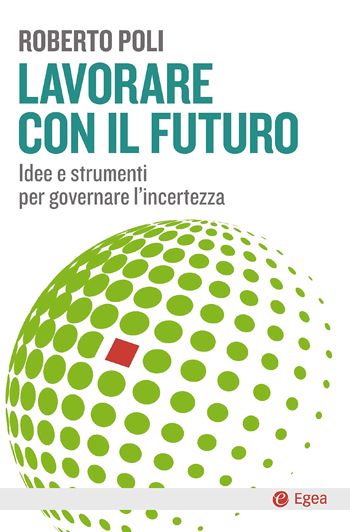Working towards the future
Methods and techniques to face what lies ahead, written in clear, readable language
The secret lies in the ability to respond quickly to unforeseen events. This is required of all successful entrepreneurs and good business managers. Another basic requirement is to manage situations that are increasingly uncertain and confused by learning to anticipate the future. This was the basis for Roberto Poli’s book “Lavorare con il futuro. Idee e strumenti per governare l’incertezza” (Working towards the future. Ideas and tools to govern uncertainty)
The author – who teaches Social Foresight and Epistemology of Social Sciences at the University of Trento – explains that he isn’t talking about predicting what will happen, but rather knowing how to work with measurement tools that were created “to visualise possible futures and develop scenarios to guide decisions taken in the present”.
It is therefore necessary to know how to measure risks and identify changes; we have to distinguish between what is complicated and what is actually complex. A lot of practice is needed. It is precisely for this reason that you should read Poli’s book, which confronts the subject in several stages, each one with its own tools and methods. The resources used to practice – and then to work – are specific approaches such as those related to collective intelligence, military tactics and strategies for building resilience.
The book comprises a series of 10 chapters. It begins by bringing order to the definitions and then clarifies the concepts of mega-trends and anticipation. Poli then delves into the binomial risk-uncertainty and complicated-complex issues followed by an examination of the toolbox for those who “work towards the future”.
Roberto Poli’s book is interesting and merits being read from top to bottom: it is not always easy but it is definitely a good read. The closing is fantastic: a commemoration to Aurelio Peccei and the inseparability of the future from the quality of being human.
Lavorare con il futuro. Idee e strumenti per governare l’incertezza
Roberto Poli
EGEA, 2019


Methods and techniques to face what lies ahead, written in clear, readable language
The secret lies in the ability to respond quickly to unforeseen events. This is required of all successful entrepreneurs and good business managers. Another basic requirement is to manage situations that are increasingly uncertain and confused by learning to anticipate the future. This was the basis for Roberto Poli’s book “Lavorare con il futuro. Idee e strumenti per governare l’incertezza” (Working towards the future. Ideas and tools to govern uncertainty)
The author – who teaches Social Foresight and Epistemology of Social Sciences at the University of Trento – explains that he isn’t talking about predicting what will happen, but rather knowing how to work with measurement tools that were created “to visualise possible futures and develop scenarios to guide decisions taken in the present”.
It is therefore necessary to know how to measure risks and identify changes; we have to distinguish between what is complicated and what is actually complex. A lot of practice is needed. It is precisely for this reason that you should read Poli’s book, which confronts the subject in several stages, each one with its own tools and methods. The resources used to practice – and then to work – are specific approaches such as those related to collective intelligence, military tactics and strategies for building resilience.
The book comprises a series of 10 chapters. It begins by bringing order to the definitions and then clarifies the concepts of mega-trends and anticipation. Poli then delves into the binomial risk-uncertainty and complicated-complex issues followed by an examination of the toolbox for those who “work towards the future”.
Roberto Poli’s book is interesting and merits being read from top to bottom: it is not always easy but it is definitely a good read. The closing is fantastic: a commemoration to Aurelio Peccei and the inseparability of the future from the quality of being human.
Lavorare con il futuro. Idee e strumenti per governare l’incertezza
Roberto Poli
EGEA, 2019
